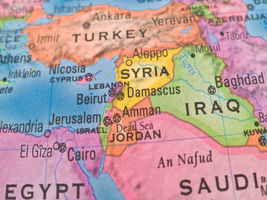One of the most important, but easily overlooked aspect of being a doctor is to be culturally competent, as well as to have a reasonable knowledge of the history of medicine. The former is vitally important, as we work with a multitude of individuals from a variety of different backgrounds, and doctors must demonstrate a high degree of tolerance and empathy. The latter is also of importance because in order to use our medical technology wisely, it is crucial to understand how it originated. To give you all a break from your GAMSAT® Exam preparation, GAMSAT® Exam tutoring, or medical school interview preparation, I’d like to take you back to the Islamic ‘Golden Age of Science’ for a few paragraphs.
One of the other reasons I want to focus on this age is to respond to some of our political figures uneducated comments regarding Islamic culture and its supposed inferiority to that of the Western world. Through this piece I wish to demonstrate to you the fascinating background of our medical knowledge, and specifically the discoveries that have come to us from the Islamic world – along with some of the innovations still occurring in the Middle-East as we speak.
The ‘Golden Age of Science’ was widely recognised to have occurred between the 9th to the 14th centuries across the Islamic world. Al-Razi was one of the first pioneers of this age. Born in the mid-9th century, he was an early proponent for scientific medicine and served as the Chief Physician in Baghdad, where he developed the idea of control-group experimentation. Indeed, so much was his fondness of experimentation that when the ruling Caliph asked Al-Razi where he should build a new hospital in 9th century Baghdad, Al-Razi designed an experiment to identify the best location: he hung up meat around the city, and the place where the rotting process was the slowest was deemed to have the ‘cleanest air’, and so the hospital was built there.
In the 9th and 10th centuries, the purpose of hospitals in continental Europe, and elsewhere, were to mainly provide care, rather than offer any pharmaceutical treatment. Islamic hospitals were some of the first to offer rudimentary treatments, all of which were formulated from the hospital herb garden, which was the antique version of a drug distillery. Cairo and Damascus were the first hospitals to offer active treatment and free medicine for patients.
The 13th-century scholar Ibn al-Nafis (Syrian) redefined the understanding of pulmonary circulation. As a young scientist, he bravely challenged the commonly accepted wisdom of the Greek scholar Galen, who had said that blood passed directly between the heart's right and left ventricle through the porous septum. Ibn al-Nafis put forward the idea that blood could not pass directly between the right and left chambers of the heart - and that the blood must go to the lungs to ‘mingle’ with oxygen, and then go back to the heart to be redistributed to the body. It was only 400 years later that this physiological process was formally discovered by Western medicine.
Another scholar, Ibn Sina was a polymath and regarded as one of the most significant thinkers of the Golden Age. He wrote Al-Qanun fi al-Tibb (The Canon of Medicine), which discussed human anatomy in great detail and contained a lot of common sense, as well as some superstition, but remained in use around the world for over 500 years.
Even against the backdrop of regional instability and war, many advances are currently taking place in the Middle East; Weill Cornell Medical College in Qatar are making huge advances in mapping the human genome, and at Hamad Hospital a new treatment is being trialled for babies born with neonatal encephalopathy. These are just a minute number of examples of medical pioneering in the Middle East.
I hope this has been informative and interesting! I find that looking into medical history is absolutely fascinating, and it really gave me a great sense of appreciation for medical pioneers across the world and throughout history. I hope that this will also stress the importance and significance of multicultural endeavours in improving our science and living conditions ☺
Check out our GAMSAT To Med School Podcast for more interesting news, tips & tricks about the GAMSAT, applying to medical school, and life at med school.





